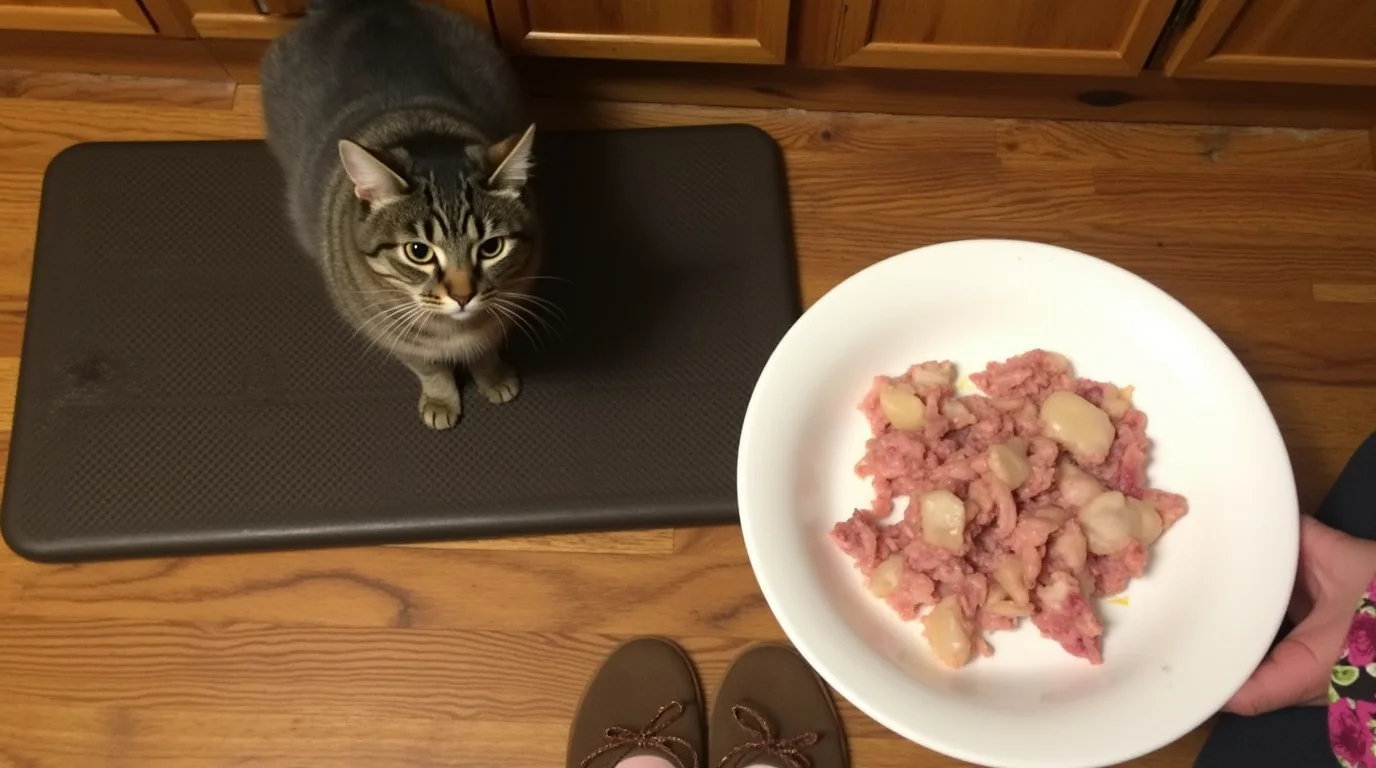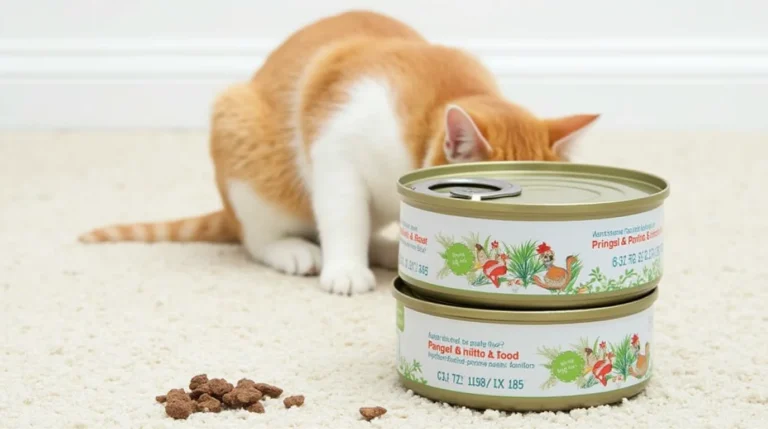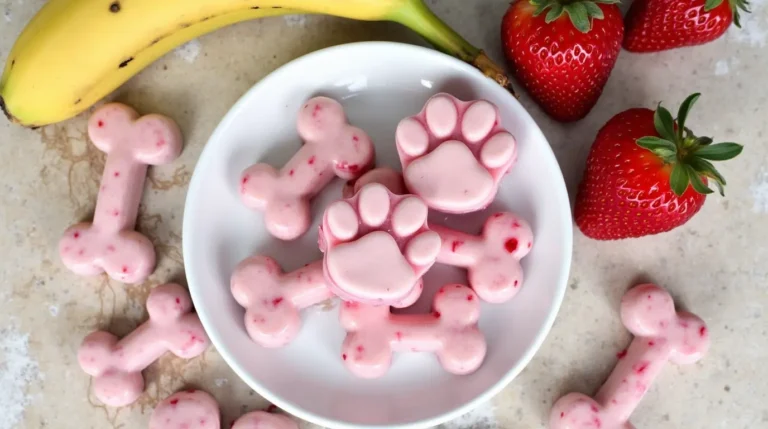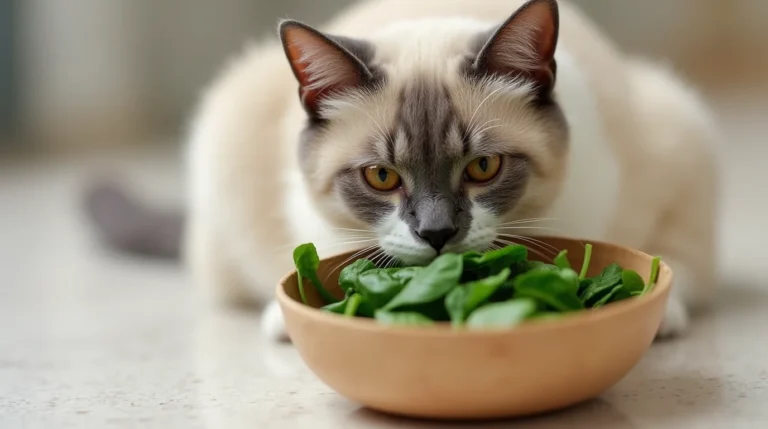In This Articale
Why Choose Homemade Cat Food Recipes?
Many pet owners are shifting toward homemade cat food recipes to ensure their furry companions get the best nutrition possible.
Store-bought pet food often has preservatives, artificial flavors, and low-quality ingredients. These may not be good for your cat’s long-term health. When you cook at home, you control the ingredients. This helps you create a balanced and healthy diet for your cat.
Benefits of Feeding Your Cat Homemade Meals
Switching to homemade cat food recipes comes with several advantages:
- Better Nutrition – You can ensure your cat receives high-quality proteins, healthy fats, and essential vitamins.
- No Harmful Additives – Homemade meals eliminate artificial preservatives, fillers, and by-products.
- Tailored to Specific Needs – Cats with allergies or dietary restrictions can benefit from a customized diet.
- Cost-Effective – Preparing food at home can be more affordable than premium commercial cat food brands.
Essential Nutrients for Homemade Cat Food Recipes
Cats have unique dietary needs, so it’s important to include the following essential nutrients:
- Protein – Cats are obligate carnivores, meaning their diet should be rich in animal-based protein. Chicken, turkey, beef, and fish are excellent choices.
- Taurine – An essential amino acid that supports heart health and vision. Found in animal meats like chicken and fish.
- Healthy Fats – Omega-3 and omega-6 fatty acids support a shiny coat and healthy skin. Good sources include fish oil and chicken fat.
- Calcium and phosphorus support bone health in cats, and you can source these minerals from crushed eggshells or bone meal.
- Vitamins and Minerals – A good homemade diet should have important vitamins like A, B, D, and E. You can add supplements if needed.
Best Homemade Cat Food Recipes for a Balanced Diet
1. Chicken and Rice Cat Food Recipe
This easy-to-make recipe is packed with protein and essential nutrients.
Ingredients:
- 1 cup cooked chicken (shredded)
- ¼ cup cooked white rice
- ½ cup steamed carrots (mashed)
- 1 teaspoon fish oil
- ¼ teaspoon taurine supplement
Instructions:
- Cook the chicken thoroughly and shred it into small pieces.
- Cook the rice and steam the carrots until soft.
- Mash the carrots and mix them with chicken and rice.
- Add fish oil and taurine supplement, mixing well.
- Serve at room temperature and store leftovers in an airtight container in the refrigerator.
2. Fish and Sweet Potato Recipe
Perfect for cats that love seafood, this recipe is rich in omega-3 fatty acids.
Ingredients:
- ½ cup cooked salmon or tuna
- ¼ cup mashed sweet potato
- 1 teaspoon flaxseed oil
- ¼ teaspoon taurine supplement
Instructions:
- Cook the fish and remove all bones.
- Boil and mash the sweet potato.
- Mix the fish, mashed sweet potato, flaxseed oil, and taurine supplement.
- Serve fresh or store for up to three days in the refrigerator.
3. Turkey and Pumpkin Meal
This recipe is great for digestive health and packed with essential nutrients.
Ingredients:
- ½ cup ground turkey (cooked)
- ¼ cup pure pumpkin puree (unsweetened)
- 1 teaspoon fish oil
- ¼ teaspoon taurine supplement
Instructions:
- Cook the ground turkey until fully done.
- Mix in the pumpkin puree and fish oil.
- Add the taurine supplement and mix thoroughly.
- Serve fresh or refrigerate for later use.
Tips for Preparing Homemade Cat Food Recipes
- Consult a Veterinarian – Always check with a vet before making any dietary changes.
- Use Fresh Ingredients – Ensure all meats, vegetables, and supplements are fresh and free from harmful additives.
- Avoid Toxic Foods – Never feed your cat onions, garlic, chocolate, grapes, or anything containing caffeine.
- Monitor Your Cat’s Health – Pay attention to weight, energy levels, and coat health to ensure the diet meets your cat’s needs.
Common Mistakes to Avoid When Making Homemade Cat Food
- Skipping Essential Nutrients – Without proper supplementation, homemade meals can lack key nutrients like taurine and calcium.
- Using Raw Meat Improperly – Raw diets can carry bacteria if not handled correctly. Always use fresh, high-quality meats.
- Overfeeding or Underfeeding – Portion control is crucial. Adjust meals based on your cat’s weight and activity level.
- Not Storing Food Properly – Always refrigerate homemade food in airtight containers to maintain freshness.
How to Transition Your Cat to Homemade Food
Cats can be picky eaters, so a gradual transition is key:
- Start by mixing a small amount of homemade food with their regular diet.
- Gradually increase the homemade portion over 7-10 days.
- Monitor for any digestive issues or allergic reactions.
- Ensure your cat is drinking enough water to stay hydrated.
Frequently Asked Questions (FAQs)
1. Is homemade cat food healthier than commercial cat food?
Yes, homemade cat food can be healthier if properly balanced. It eliminates harmful preservatives and allows you to use fresh, high-quality ingredients tailored to your cat’s needs.
2. Can I feed my cat only homemade food?
Yes, but it must be nutritionally complete. Cats require essential nutrients like taurine, vitamins, and minerals, and their diet must include these nutrients. I highly recommend consulting a vet.
3. What meats are best for homemade cat food recipes?
Lean meats such as chicken, turkey, and fish are ideal. Always ensure that you fully cook the meat and remove any bones.
4. Are there any foods I should avoid feeding my cat?
Yes, avoid onions, garlic, chocolate, grapes, dairy, caffeine, and artificial sweeteners like xylitol. These can be toxic to cats.
5. How often should I feed my cat homemade food?
Adult cats typically need two meals per day. The portion size depends on your cat’s weight, age, and activity level.
6. Can I store homemade cat food, and for how long?
Yes, you should store homemade cat food in an airtight container in the refrigerator for up to three days. For longer storage, freeze portions and thaw them before feeding.
Final Thoughts on Homemade Cat Food Recipes
Preparing homemade cat food recipes can be a rewarding experience that enhances your cat’s health and longevity. By using fresh, high-quality ingredients, you can meet your cat’s nutritional needs. This helps create a balanced and healthy diet.
Always talk to a veterinarian before changing your pet’s diet. This way, you can enjoy a healthier and happier cat.







